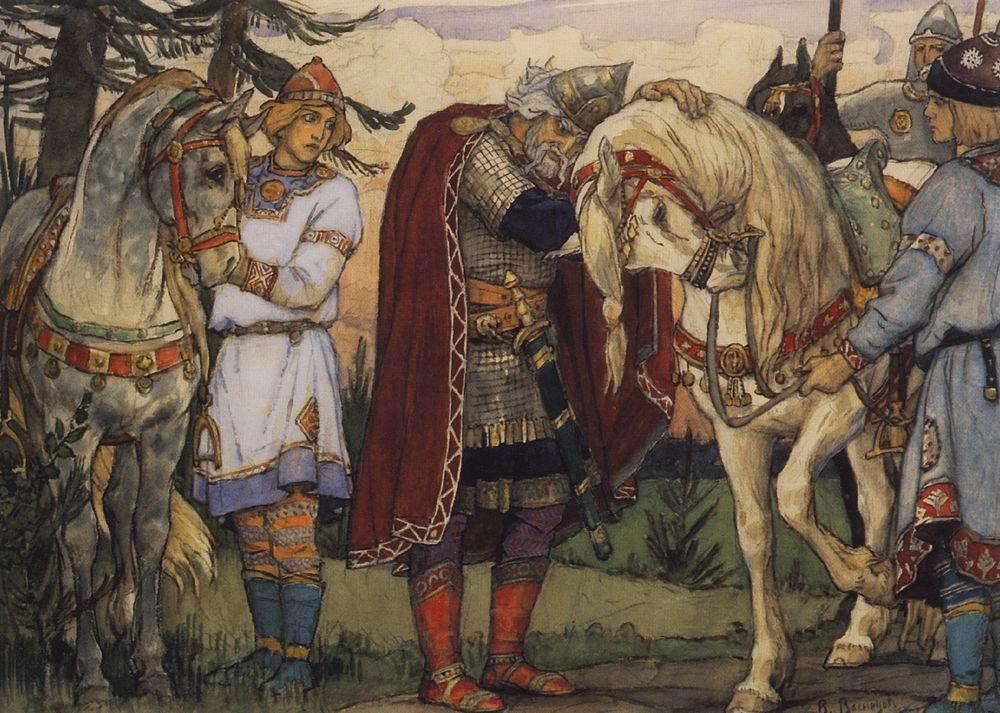Oleg, Grand Duke of Kiev, -912
Enlarge text Shrink text- I bytʹ rodu Ri︠u︡rikovicheĭ, 1996:p. 397 (Oleg, d. 912 - kievskiĭ kni︠a︡zʹ)
- Bolʹshai︠a︡ sovetskai︠a︡ ėnt︠s︡iklopedii︠a︡, 3rd ed.:(Oleg Veshchiĭ, d. 912, drevnerusskiĭ kni︠a︡zʹ)
- Bolʹshoĭ ėnt︠s︡iklopedicheskiĭ slovarʹ, 2nd ed.:(Oleg, b. date unknown, d. 912, kni︠a︡zʹ kievskiĭ)
- LC in OCLC, June 2, 1998(hdg.: Oleg, Grand Duke of Kiev, d. 912)
Oleg (Old East Slavic: Ѡлегъ, romanized: Ōlegǔ, Ольгъ, Olǐgǔ; Old Norse: Helgi; died 912), also known as Oleg the Wise, was a Varangian prince of the Rus' who became prince of Kiev, and laid the foundations of the Kievan Rus' state. According to the Primary Chronicle, he succeeded his "kinsman" Rurik as ruler of Novgorod, and subdued many of the East Slavic tribes to his rule, extending his control from Novgorod to the south along the Dnieper river. Oleg also launched a successful attack on Constantinople. He died in 912 and was succeeded by Rurik's son, Igor. This traditional dating has been challenged by some historians, who point out that it is inconsistent with such other sources as the Schechter Letter, which mentions the activities of a certain khagan HLGW (Hebrew: הלגו usually transcribed Helgu. Compare Swedish first name Helge.) of Rus' as late as the 940s, during the reign of Byzantine Emperor Romanus I. The nature of Oleg's relationship with the Rurikid ruling family of the Rus', and specifically with his successor Igor of Kiev, is a matter of much controversy among historians.
Read more on Wikipedia >
 Personality
Personality








